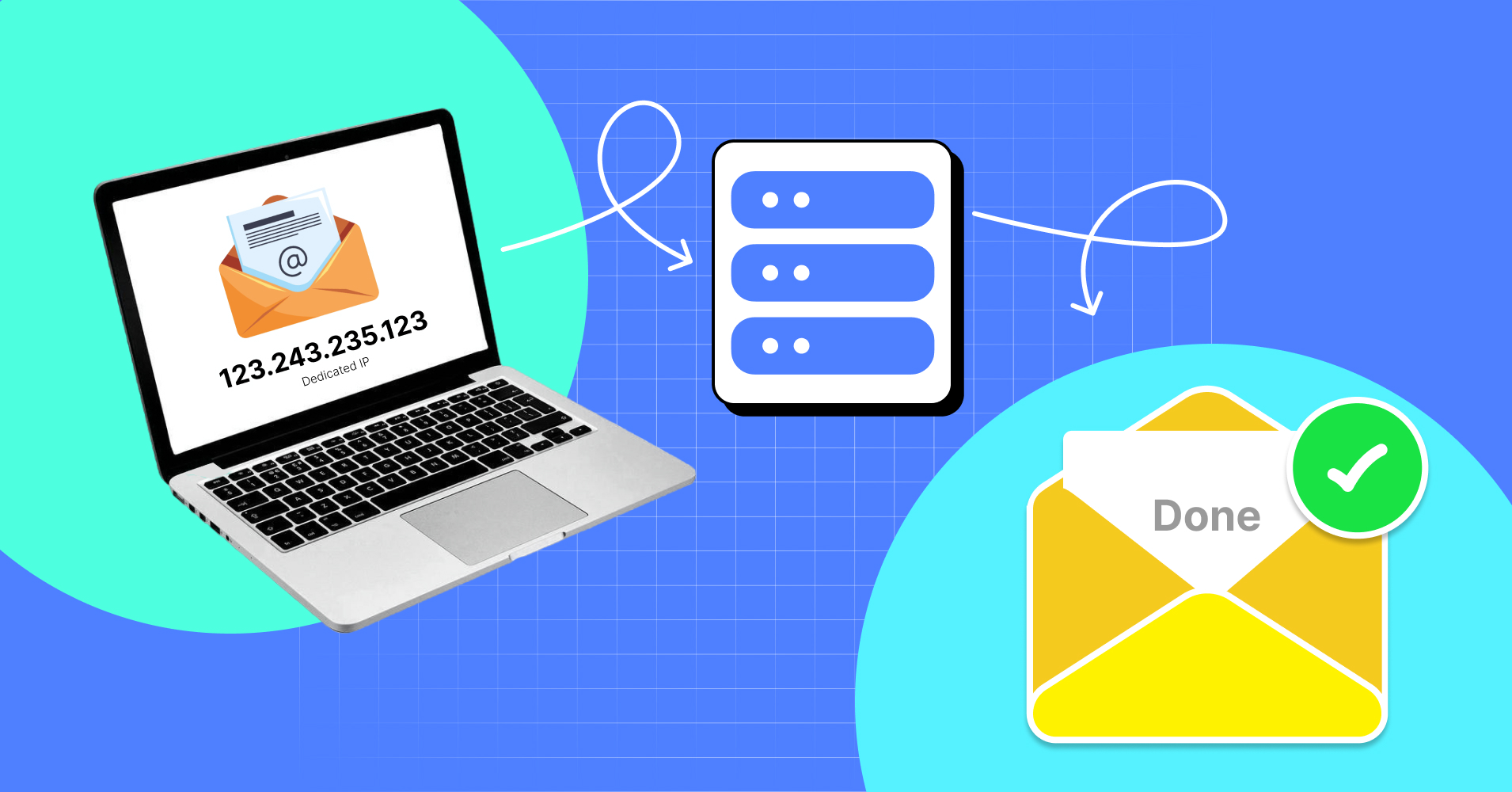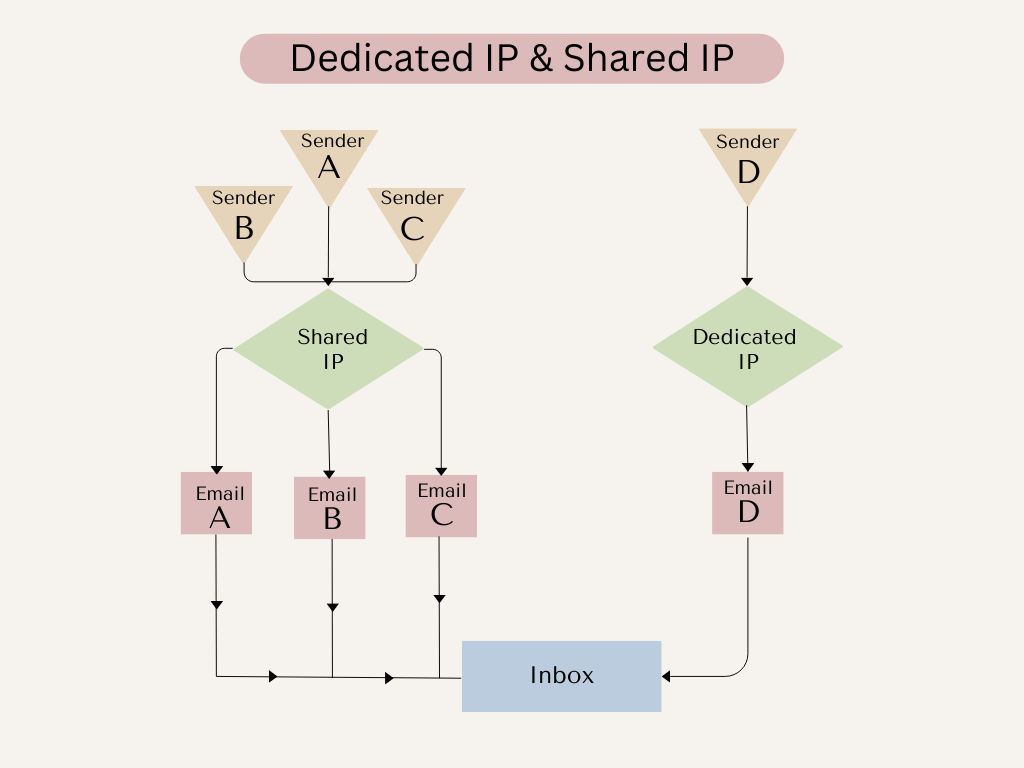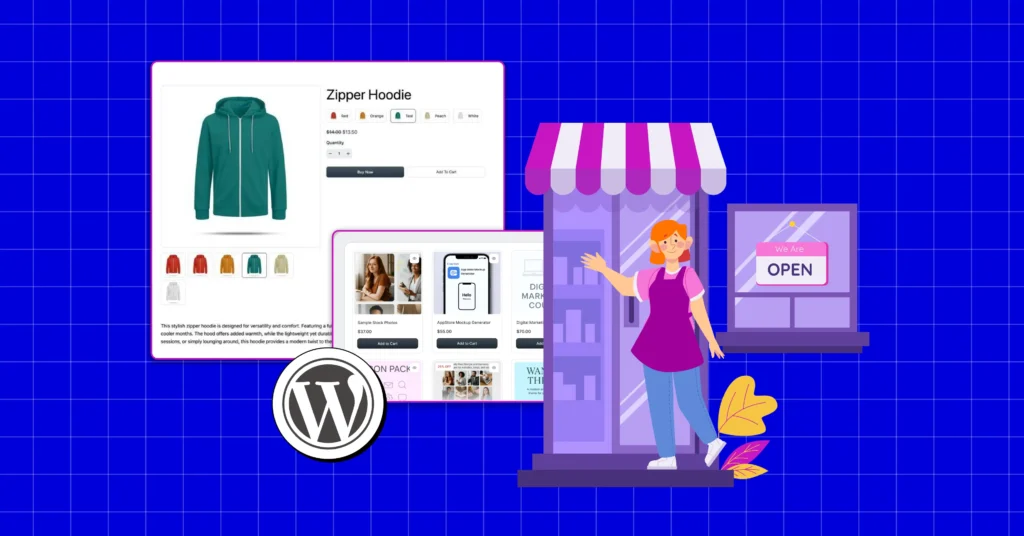
Dedicated IP in Email Marketing: Everything You Need to Know
Imagine this: you’ve put lots of effort into creating the perfect email—exciting offers, eye-catching visuals, and a personal touch. You hit “send” and are excited to see the conversions.
But then, your emails didn’t even make it to the inbox. Instead, they’re flagged as spam, worse, or not delivered.
Frustrating, right?
You’re left wondering: What went wrong?
One possible reason is the absence of a dedicated IP in your email setup. If that’s the reason that brought you here, you’re in the right place.
This guide will walk you through all about dedicated IPs—what they are, why they’re important, and whether they’re the right choice for your email strategy.
What is a Dedicated IP Address in Email Marketing?
Before getting into the details of dedicated IP addresses, let me walk you through the basics of what an IP address is. This will give you a clear understanding and help you grasp the overall concept more easily.
Let’s begin, then!
What is an IP Address?
An Internet Protocol (IP) address is like a unique ID for devices and servers on the Internet. It helps to communicate and share data with each other. Think of it as a home address, or telling others where to find you online.
However, remembering IP addresses (long strings of numbers) can be tricky. For example, instead of typing a number like “192.168.1.1” to visit a website, you use an easy-to-remember domain name like “google.com.”
This is where the Domain Name System (DNS) comes in. DNS works like a phonebook, matching domain names to their IP addresses so you can access websites effortlessly.

What is a Dedicated IP Address?
A dedicated IP address is a unique Internet Protocol address assigned to a single user or website exclusively for sending emails. It works like a private road for sending your marketing emails compared to a shared IP which is like a public road.
A dedicated IP offers you complete control over your email-sending reputation
Why You Need Dedicated IP as an Email Marketer?
In email marketing, dedicated IP offers a host of advantages for businesses looking to optimize their email campaigns. Take a closer look at why marketers prioritize dedicated IPs:
- Improve Email Deliverability: When you send emails from a dedicated IP, there is less chance of being flagged as spam. It helps businesses to maintain direct communication without interruptions.
- Better Sender Reputation: With a dedicated IP, your sender reputation is entirely in your hands. This means your IP reputation won’t suffer due to poor email practices from other senders.
- Control Over Sending Pattern: Delivers the best control and consistency in delivery times with large email volumes. This includes delivering transactional emails, and advertising campaigns.
- Boost Email Performance: Using a dedicated IP ensures more emails reach your audience, and you’ll see improved engagement, higher sales, and increased conversions.
- Scalability: Dedicated IPs are designed to handle higher email volumes. It’s an ideal choice for fulfilling email marketing goals.
Dedicated IP address vs. shared IP address
In email marketing, the choice between a dedicated IP and a shared IP depends on your business needs, email volume, and goals. Here’s a detailed breakdown of the key differences:
| Factors | Dedicated IP | Shared IP |
| Reputation Management | Your sender’s reputation is entirely in your control, as the IP address is used only for your emails. No one else’s bad practice will affect your deliverability. | Your reputation is tied to everyone using the common IP. If others send spam or break the rules, your deliverability could take a hit—even if you’re doing everything right. |
| Deliverability | Ideal for businesses that send high volumes of emails consistently. Over time, your good practices build a strong reputation, improving deliverability. | Deliverability is dependent on the collective reputation of all senders using the IP. This can benefit smaller senders, as the larger sender’s good practice often stabilizes performance. |
| Resilience | Any mistakes like sending to invalid addresses or bad links can quickly harm your reputation, leading to spam folder placement or blocklisting. | Mistakes have less impact because the collective reputation of other IP can buffer your missteps, giving you time to resolve issues without significant disruption. |
| Cost | Generally more expensive, as the IP is reserved exclusively for your use. It’s best for businesses with large email lists or specific email marketing goals. | More cost-effective, as the infrastructure and costs are shared among multiple users. Perfect for small to medium-sized businesses with moderate email volumes. |
| Scalability | Better suited for growing businesses. It handles a high volume of emails and scales easily without performance dips. | Limited scalability. Sudden spikes in email volume may be flagged or trigger throttled. |
Do You Need a Dedicated IP for Email Marketing? Let’s Find Out!
Not every business requires a dedicated IP, but it could be a game-changer if you’re sending large email volumes or want full control over your sender’s reputation.
A dedicated IP allows you to manage your email deliverability without being influenced by the actions of other senders.
Conversely, shared IPs are cost-effective but come with shared risks. If another sender makes mistakes, your deliverability could suffer.
So, is a dedicated IP right for you? Let’s break it down:
Stick with a Dedicated IP If
- High Email Volume: If you consistently send 100,000+ emails, a dedicated IP helps to maintain your sender reputation without limitations.
- Personalised Protocols for Authentication: A dedicated IP lets you customize email setup, including allowlisting, sending settings, and domain-specific rate limits.
- Strong Control of Sender Reputation: With a dedicated IP you control your sender reputation entirely, ensuring better trust and delivery by ISPs like Gmail or Yahoo.
- Deliverability Goals: If your business prioritizes inbox placement, especially with high volume or time-sensitive emails, it ensures great deliverability control.
- Sending patterns: Regular, consistent sending schedules are crucial for warming up and maintaining a dedicated IP’s reputation.
Stick with Shared IP If,
- Low Email Volume: Sending fewer than 100,000 emails per month? A shared IP can save you effort and cost while maintaining good deliverability.
- Irregular sending pattern: Businesses that send emails sporadically or only during specific events may struggle with IP warm-up and maintaining consistent deliverability.
- Budget Constraints: Dedicated IPs come with higher costs, which might not be justifiable for small businesses or startups with limited resources.
- Limited Resources for Maintenance: Managing a dedicated IP requires adherence to best practices, such as regular email list cleaning and consistent management.
Eventually, whether you should choose a dedicated IP or not depends on your email marketing goals.
Top Dedicated IP Email Marketing Services
Now, You probably have a good idea of whether a dedicated IP is the right fit for your email marketing needs. If you’re leaning toward using a dedicated IP, choosing the right provider is key to maximizing your results and achieving your goals.
Here are some top options to consider:
Provider | Add New | Best For | Prices |
User-friendly, strong infrastructure | Small to medium businesses | $89 per month | |
Affordable, scalable, advanced analytics | High-volume senders | $24.95 per month | |
Specializes in transactional emails | SaaS platforms and developers | $50 per month | |
Flexible pricing, robust API | Tech-savvy organizations | $90 per month | |
Reliable and smooth email delivery | Large enterprises | $251 per year |
Best Practices for Dedicated IP for Enhancing the Potential
As a member of the FluentSMTP plugin, we understand just how important email deliverability is, where maintaining a good reputation is absolutely essential.
However, achieving optimal results takes careful management and a commitment to following best practices.
Start with IP Warm-Up
When using a new dedicated IP, you need to introduce it gradually to email service providers (ESPs) to build trust. Start with high-engagement, low-volume recipients, then slowly increase the volume of messages you send over a few weeks.
Because Sending a high volume of emails from a new IP can trigger spam filters. Follow a ramp-up schedule, starting with 1,000 emails/day and increasing based on ESP feedback.
Maintain Hign Engagement Rates
High engagement (opens, clicks, replies) signals legitimacy and improves your sender reputation. Focus on sending emails to recipients who regularly interact with your content.
- Avoid sending to unverified or inactive lists
- Segment your audience to prioritize active users first
- Regularly clean your list by removing inactive or unresponsive recipients
Authenticate Your Email Domain
Ensure your emails are verified with Email authentication protocols like SPF, DKIM, and DMARC records. This proves that your emails come from a trusted source and haven’t been altered. Also, leveraging AI development services can further enhance email security and deliverability by detecting anomalies and optimizing sending patterns.
Work with your hosting or email provider to set up these records in your domain’s DNS settings. Proper configuration helps you avoid spam folders and strengthens your email trustworthiness.
Monitor Your IP Reputation Regularly
Your IP’s reputation is like a credit score for email sending. A poor reputation can lead to your emails being blocked or landing in spam folders. Regularly monitoring your IP reputation allows you to address potential issues before they escalate.
Use tools like Google Postmaster Tools, Microsoft SNDS, or SenderScore to track your IP’s health. Look out for unusual spikes in spam complaints, bounces, or drops in deliverability.
Send Email Consistently
Consistency in email activity is critical. ESPs monitor your sending patterns, and irregular spikes can raise red flags.
- Plan campaigns with steady frequency and volume—even during slow periods
- Avoid sending large batches of emails without warming up your IP first
Comply with Email Laws and Regulations
Follow global email laws like CAN-SPAM Act, GDPR, and CASL to protect user privacy and avoid fines or blacklisting.
- Include clear unsubscribe links
- Avoid misleading subject lines
- Only send emails to recipients who have opted in
- Respect user preferences and data privacy at all times
Analyze and Optimize Email Metrics
Track key metrics like open rates, click-through rates, bounce rates, and spam complaints. Poor performance signals the need for improvement.
- Use analytics to test subject lines, content, and send times
- If a campaign underperforms, identify the root causes and adjust your strategy
Start Your Email Marketing With Dedicated IP Address
And that’s a wrap! If you’re consistently sending large volumes of emails or want full control of your campaigns dedicated IP addresses can be a game-changer for your email marketing.
However, a shared IP might be the more practical choice, if you send fewer than 100,000 emails per month, have an irregular sending schedule, or have a tight budget.
Your goal is to ensure email deliverability for your marketing. So pick whether dedicated IP or shared IP that will match your business strategy needs.
Ultimately, the goal is to ensure your emails reach your audience. Choose the option—dedicated or shared IP—that best aligns with your business strategy and needs.

Jhorna Rani Gope
Meet Jhorna Gope, a passionate Digital Marketer and content-writing enthusiast. Along with this, she loves exploring new things with tech world, planting trees, and cherishing time with her family.
Table of Content
Subscribe To Get
WordPress Guides, Tips, and Tutorials












Leave a Reply